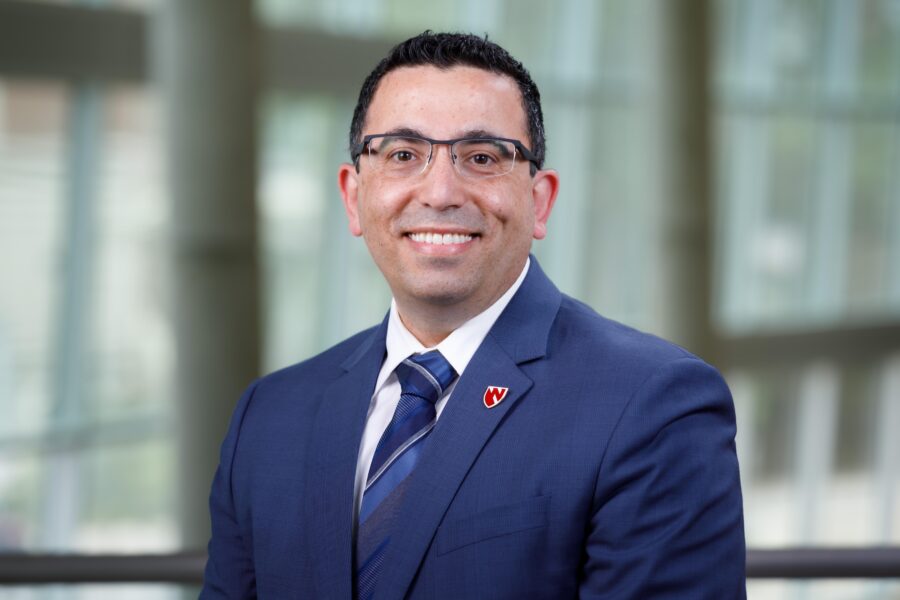Joseph Khoury, MD, chair of the University of Nebraska Medical Center Department of Pathology and Microbiology at UNMC, has been named the inaugural chair member of the World Health Organization’s WHO Classification of Tumors (WCT) standing editorial board. The WCT is the definitive global standard for the classification of all human cancers to enable diagnosis and research worldwide.
Dr. Khoury, who has spent his career as a diagnostic cancer pathologist with faculty appointments at some of the world’s leading cancer institutions, said it was “a tremendous honor to impact the field of cancer in such a fundamental way. I am passionate about making a difference in the lives of patients with cancer through improvements in cancer diagnosis and personalized characterization.”
Dr. Khoury, the Stokes-Shackleford Professor at UNMC, is a widely recognized cancer expert, having published over 330 peer-review papers, in addition to textbooks and book chapters. He also has played a leadership role at a national level in standardizing cancer and biomarker reporting. Dr. Khoury joined UNMC and Nebraska Medicine in June 2022.
The WTC, published by the WHO through the International Agency for Research on Cancer, consists of textbooks that define and characterize the clinical and biologic features of hundreds of cancer types that arise in various human organ systems.
The idea of the classification was first promulgated in 1952 when physicians and researchers recognized the need to establish a universal classification that permits knowledge exchange and grown in the field of cancer. The idea was endorsed by the 10th World Health Assembly in 1957, and the first WCT edition was launched 1967 following years of preparation that included the establishment of cancer centers in countries around the world.
The WCT has ushered technological developments that currently form the foundation for characterizing human cancers around the word. Such developments have included clinical laboratory tools to determine the protein makeup and the genetics of cancer cells, providing the basis for today’s cutting edge personalized medicine for cancer care.

What a great honor and well deserved! Congratulations!